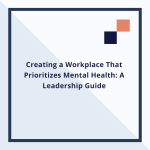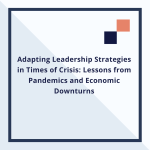In the fast-paced world of business, leaders often find themselves at crossroads, where decisions must be made swiftly and effectively. These critical moments can define not only the future of a company but also the legacy of its leadership. While decision-making is an essential skill in any leadership role, navigating through tough, high-stakes situations requires a unique blend of strategy, intuition, and resilience.
Table of contents [Show]
1. Understanding the Stakes
The first step in making decisions under pressure is to fully grasp the gravity of the situation. Critical moments, such as financial crises, market shifts, or internal conflicts, often come with high levels of uncertainty. A leader’s ability to quickly identify the underlying challenges and long-term implications is key to crafting a well-informed response. A leader must ask: What’s at stake? Who will be affected? What resources are available?
2. Balancing Speed and Accuracy
In times of crisis, the pressure to act quickly can lead to rushed, less-than-optimal decisions. However, great leaders know the importance of finding a balance between the speed of response and the accuracy of the decision. This balance is often struck by utilizing data and consulting with key stakeholders, but ultimately, the responsibility rests with the leader. One effective approach is to make “preliminary decisions,” allowing room for adjustment as more information becomes available.
3. Trusting Intuition with Caution
Intuition plays a significant role in leadership, especially when there is incomplete information or when time constraints limit thorough analysis. Experienced leaders develop a "gut feeling" over time, often based on years of pattern recognition and problem-solving. However, while intuition can guide leaders toward smart decisions, relying solely on it can be risky. A combination of intuitive insights and data-driven validation usually leads to better outcomes.
4. Engaging the Team
Leadership is not just about personal decision-making but also about leveraging the expertise and insights of a team. In critical times, effective leaders foster a collaborative environment, seeking diverse perspectives before making a final call. This not only improves decision quality but also ensures team buy-in and reduces resistance to implementation.
Perhaps one of the most difficult yet important traits of a leader during critical decision-making is the ability to remain calm under pressure. Panic and stress can cloud judgment and lead to errors. Leaders who demonstrate calmness during crises not only think more clearly but also inspire confidence in their teams, which is crucial for maintaining morale and focus.
6. Evaluating Risks and Contingencies
Every decision comes with risks, and in high-pressure scenarios, the stakes can be even higher. Leaders must carefully weigh the risks of each potential action while also considering contingency plans. What if Plan A fails? How can the organization pivot if an unexpected challenge arises? Having contingency plans in place can provide a safety net, ensuring that the organization remains agile and adaptable.
7. Making Ethical Decisions
Critical moments often involve ethical dilemmas, where short-term gains may come at the cost of long-term values. A true test of leadership is the ability to make decisions that uphold the integrity and ethical standards of the organization, even when under pressure to compromise. Ethical leadership fosters trust and long-term sustainability, far outweighing the benefits of quick, unethical wins.
8. Learning from the Aftermath
Every critical decision, whether successful or not, offers an invaluable learning opportunity. Great leaders reflect on the outcomes of their choices, analyzing what worked and what could have been done differently. This process of reflection and learning ensures continuous growth and prepares leaders for future challenges.
Conclusion
Leadership in critical times is an art that combines analytical skills, emotional intelligence, and strategic foresight. While every leader may face moments of doubt, those who are prepared, collaborative, and ethical in their decision-making will lead their teams through the storm with success and integrity. The key is not just to make decisions but to make the right decisions, with a clear understanding of both immediate and long-term consequences.
In today's volatile business environment, mastering the art of decision-making during critical times is not just a skill, but a necessity for effective leadership.






